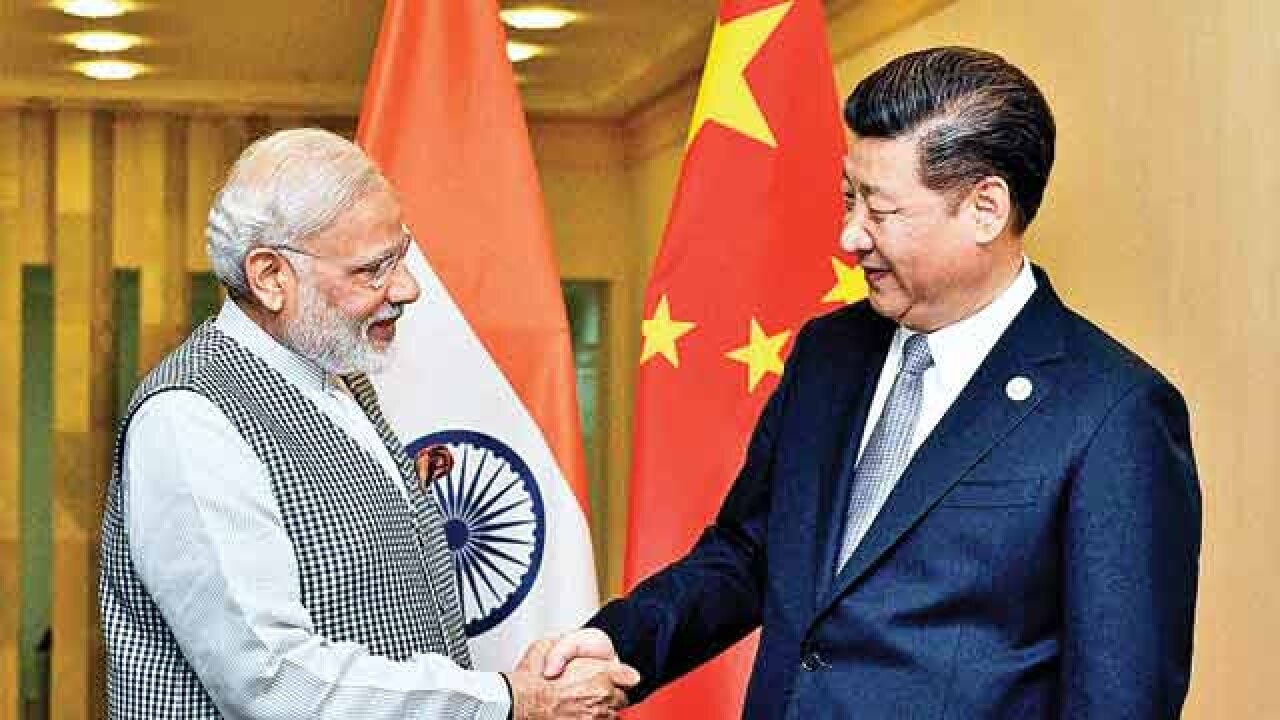
The plenary of the Nuclear Suppliers Group (NSG) at Seoul has concluded, and it is China that has emerged triumphant in what can best be described as intense diplomatic wrestling. Beijing has managed to achieve what it set it out to do, even before the plenary was convened formally — ie, block India’s membership at the NSG, at any cost.
Surfacing more than clearly is the fact that China was decidedly prepared to scuttle India’s application for the NSG membership, even if it was to be the last man standing. What worked in Chinese favour is that the NSG, as a group, works on decision-making by consensus, and not by majority vote. Had that been the case, then India’s bid received thumping support from 32 nations in the 48-member NSG.
There are multiple geo-political and geo-strategic realities that India has to contend with, and work towards, post the Seoul NSG plenary outcome. To begin with, it is evidently unambiguous that China does, in fact, remain opposed to India’s membership and entry into the NSG. This is contrary to what Indian External Affairs Minister Sushma Swaraj said during a detailed interaction with the media a week prior to the plenary, wherein she rather unexpectedly proclaimed that “China is not opposed to India’s entry into the Nuclear Suppliers Group”. Swaraj’s comments came just days after Foreign Secretary S Jaishankar visited Beijing to discuss India’s NSG bid, leading to speculation of what message did the Foreign Secretary carry back with him from Beijing. Swaraj’s argument that “Beijing is focusing on criteria procedure” does hold true, but only to an extent. The reality is that China is taking the route of “criteria procedure” as a means to ultimately reach its desired end, that of blocking India’s NSG membership – as demonstrated amply at the NSG plenary. There are no two ways about it.
Lead Chinese negotiator and Director-General of the Department of Arms Control, Wang Qun, craftily used the signing of the “NPT criteria” as being “really an issue” for members, and that “this is not a rule set by China, this is the rule set by the NSG and reaffirmed by the international community”. What is critical to note here is that China is fast gaining traction by virtue of injecting a Sino-centric rearrangement of the world order, and seemingly challenging the existing liberal global order. And in doing so, Beijing seeks to reject the charge made by Indian MEA spokesperson that of “… procedural hurdles persistently raised by one country” — a tacit reference to China. Wang challenged that China was not in isolation during the session by claiming “…not only China, but dozens of countries share China’s view that we need to discuss how we can go forward, how can we deal with non-NPT states as a whole, before taking up India’s case”.
It is nothing short of a paradox that China with its much blemished record on non-proliferation, is talking about “rules”. The iniquitous and illicit nuclear and missile-related proliferation activities ran by China across Asia since the 1980s, directly, and indirectly, has caused irretrievable alteration of strategic realities across Asia.
The NSG event has also delivered a verdict on personality factors and the extent of influence it could end up yielding. PM Narendra Modi made a fervent push for India’s case by urging President Xi Jinping “…to make a fair and objective assessment of India’s application” while they met on the sidelines of the SCO Summit in Tashkent. However, it seemed to have done little to convince Xi, given that the 45-minutes Tashkent meeting between the two ended without a statement of support from China. This drives towards taking note of a vital development. While evaluating the various determinants in foreign policy-making, many a time, it is individuals and personalities who could end up being most profound in terms of outcomes. Eight years back, India was granted a waiver at the NSG following the full weight of the George W Bush administration in support of New Delhi, including the clincher phone call made by President Bush to Chinese President Hu Jintao, following which Beijing relented. This time round however, India and the US have had to deal with a far more obstinate Xi Jinping — whose leadership, political standing and control, labels him as China’s most powerful and tight-fisted ruler since Deng Xiaoping, and possibly even Mao Zedong.
Let there be no doubt that Xi Jinping is the locus of Chinese politico-diplomatic belligerence bringing to focus the larger debate structured around the growing power and influence of China. And, as part of this chessboard, Beijing will continue to keep India confined regionally, expectedly through the Pakistan angle (including during future discussions at the NSG) and challenge India’s appearance on the global stage, especially as far as New Delhi’s role in international rule-making is concerned. In the long-term, China aims to deny India a permanent seat in the UN Security Council, for which membership at the NSG would be a key milestone for India to build up its case.
While New Delhi’s declared effort for an immediate membership at the NSG has undoubtedly received a setback, it does not impact the nuclear fuel supply agreements and the supply of nuclear power plants from a number of countries. However, being denied membership at the NSG, India cannot access state-of-the-art nuclear technologies, or begin commercial production of nuclear power equipment. Having leaving no stone unturned to deny India the NSG membership, Chinese spite was conveyed via a state-run Xinhua commentary which offered “Chinese help to India to address its nuclear energy needs”. Beijing, apparently, is “ready to explore cooperation in this field”. New Delhi should effectively snub this overture made by China for nuclear commerce, and should muscle up diplomatically to take on Beijing in the next rounds of negotiations at multiple, bilateral and multilateral meetings and forums.
The author is a Senior Fellow at the Centre for Land Warfare Studies, New Delhi, where she heads the China study programme